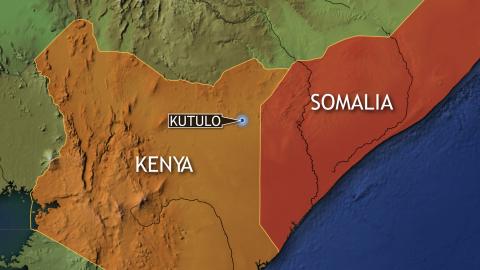
'Bloodbath Prevented': Kenyan Muslims Risk Their Lives to Save 20 Christians from al-Shabaab Attack
Muslims recently warned a group of Christians working at a government hospital construction site in Kutulo, Kenya of an impending attack by a jihadist group and were able to get them to safety before the militants arrived.
Local citizens told 20 Christian workers of the plans for an imminent attack on July 21 by the Islamic terrorist group al-Shabaab. The local Muslims also quickly helped evacuate the Christians to safety, according to Open Doors USA.
Kutulo is located in Mandera County, in the northeast corner of Kenya. This area borders Somalia and is a Muslim majority, according to the Christian news website Premier.
"They confronted the gunmen who proceeded to the site and failed to get what they wanted. The attackers opened fire but no one was injured before they escaped," North-eastern Regional Commissioner Mohamed Birik told several media outlets.
One Open Doors worker said the area feels more like Somalia than Kenya and is usually a very hostile place for Christians.
"Most believers who live here came here from other areas of the country for work and some for ministry. But they are treated like unwanted outsiders and face a lot of harassment and the continuous threat of targeted al-Shabaab attacks," the worker explained.
"Please thank the Lord with us that another bloodbath was prevented," the worker added. "Pray that this kind of action will become the new norm in this area. Pray for the protection over those who took this bold move."
Al-Shabaab regards Christians with a Muslim background as high-value targets. Believers who left Islam to follow Jesus are often killed on the spot when discovered. Al-Shabaab has continuously expressed its desire to eradicate Christians from the country, according to Open Doors USA.
Open Doors USA has listed Somalia as number 3 on its annual World Watch List as a place of persecution for Christians. The organization lists Kenya at number 40 with the persecution coming via Islamic oppression.



